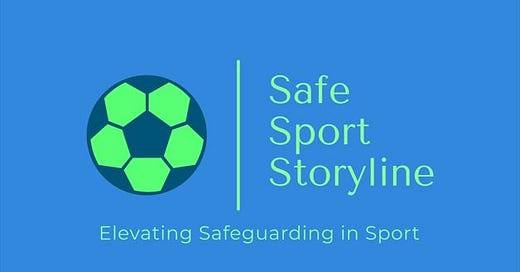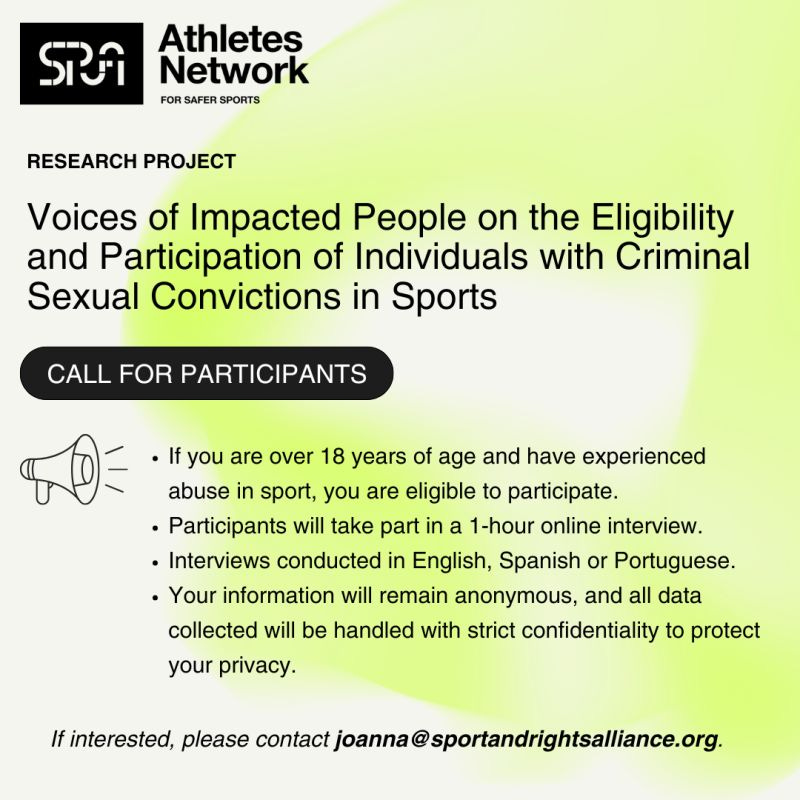Safe Sport Storyline #3
More commentary, news, events and resources to elevate safeguarding in sport.
Update on the Prophet for President Saga
In last week’s edition of Safe Sport Storyline we led with the concerns that the controversial self-proclaimed Prophet Walter Magaya was seeking to overturn a decision by the Zimbabwe Football Association (ZIFA) disqualifying him from standing as the President of the Zimbabwe Football Association.
Two days before last Saturday’s elections, the Zimbabwe High Court, Justice Chitapi, ruled in favour of ZIFA’s decision, reinforcing the organization’s authority to oversee its electoral processes and enforce its constitutional requirements.
Magaya had tried to argue that he should not be excluded for not having a minimum of four O-levels as he possessed higher levels of qualification and yet he failed to present this information in his application to the ZIFA Electoral Commission. The judge stated, “In the present matter, the applicant has been coy in disclosing further information regarding his qualifications to correct the committee’s decision.”
Before the court case there was suspicion expressed on social media that Magaya’s claims of higher qualifications were fraudulent. Magaya had claimed to have qualifications from the University of South Africa (UNISA), the largest university system in South Africa by enrolment.
Those suspicions of fraud in the qualifications claim are true as can be seen by this letter released by UNISA this week.
So Magaya has been caught in another lie. Remember he is a convicted fraudster over his claims of having a miracle HIV/AIDS cure. Given his past controversial past, and his obvious unsuitability to hold office in sport, his exclusion on integrity grounds rather than just academic qualifications seems warranted.
Leading with Purpose; Safeguarding’s Top Priority
by Peter Ouma Muga Mpsy, MIHRM, HR Compliance & Risk Management, Safeguarding Enabler, Governance Champion, Change Catalyst, Tchoukball Coach, and Certified SEAH Investigator.
As we forge into 2025, the message has never been clearer: safeguarding is not a mere afterthought, but a strategic priority. From sports to faith-based institutions, to non-profits CBOs, NGOs, or social enterprises and beyond, the need for safeguarding in organizations serving vulnerable populations is urgent and undeniable. This is no longer just a moral responsibility; it’s critical for your organization’s operational success, credibility, and future.
Safeguarding: A Strategic Priority for Leaders
Leaders, including board members, CEOs, executive directors, and safeguarding professionals across all sectors, must acknowledge that safeguarding is a fundamental necessity. Safeguarding isn't just about compliance - it's about ensuring the protection and well-being of those we serve while securing the long-term sustainability of our organizations. Failing to prioritize safeguarding is an existential risk that threatens organizational credibility, safety, and survival.
Beyond Compliance: Creating Cultures of Care
While many still treat safeguarding as a "box-to-tick," investors and funders increasingly consider it an essential component of organizational integrity. In today’s world, safeguarding isn’t a mere compliance issue; it reflects an organization’s values and is a crucial factor for long-term success and impact.
Lasting Change Starts with Leadership
Real, lasting change happens when leaders take full accountability for making safeguarding and governance a top priority. Whether in non-profits, sports, religious institutions, or even social enterprise or corporate settings, safeguarding must be embedded in the heart of every organization’s culture. We all have a role in ensuring everyone is safe - whether they are playing, worshipping, learning, working, or gathering. When safeguarding becomes a core responsibility, we lay the groundwork for a future where people, especially the vulnerable, can thrive without fear.
Key Questions for Leaders Committed to Change
Is safeguarding a standing agenda item in every board meeting?
What KPIs are you using to track safeguarding efforts?
How will you act when a survivor comes forward—what’s your response plan?
When will you launch an inclusive, organization-wide safeguarding training program?
What’s your target date for implementing effective safeguarding structures?
A Call to Frame the Legacy of Your Leadership
A few months ago, I reached out to a board chair who had spent decades steering a well-respected organization through both calm and turbulent times. Known for his steady hand and clear vision, his leadership was widely admired. During our conversation, I asked him about the kind of legacy he hoped to leave behind. Without hesitation, he said, "I want to be remembered for making the hard choices - choices that left a lasting impact, choices that created an environment where people truly thrived.
This conversation made me reflect on what it means to truly lead. It’s not just about steering an organization toward financial growth or strategic milestones—it's about shaping an environment where values like safeguarding are prioritized, and where everyone, especially the vulnerable, feels safe and supported. Every leader, from the boardroom to the operational level, has the opportunity to leave a legacy rooted in the safety and well-being of those they serve. The question isn’t whether we can make a change—it’s whether we’re willing to make it a priority, right now. Safeguarding must be more than a checkbox on a compliance form. It must be the cornerstone of the culture we foster, embedded in every decision, at every level. The leadership choices we make today will define the kind of future we leave behind.
Let's make 2025 the year safeguarding surges into center stage across all sectors!
Sports and Rights Alliance Call for Participants
The Sports and Rights Alliance are inviting people over eighteen who have experienced abuse in sport to participate in their research project in collaboration with Thomas More University.
This project aims to explore the perceptions and attitudes of people impacted by abuse in sports regarding the participation of individuals with criminal sexual convictions in mega sporting events. The Sports and Rights Alliance want to hear from you – your voice matters!
What to expect:
✅ Confidentiality: Your wellbeing is of utmost importance and all information shared will remain anonymous.
💻 Format: A one-hour online interview.
🗣️ Language: Interviews can be conducted in English, Spanish or Portuguese.
If you are interested or have any questions, please don’t hesitate to reach out to joanna@sportandrightsalliance.org.
Elevating Safeguarding in Kenyan Football
So good to hear from Joyce Achieng from the “Tegla Loroupe Peace Foundation” who was recently elected as Football Kenya Federation Kiambu County Women representative. She share news that she has helped launch a women’s league who have made their season’s theme “safeguarding in women’s football.”
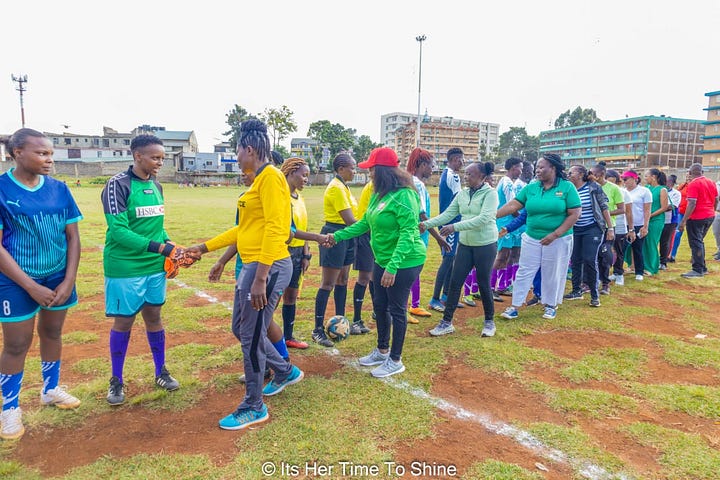
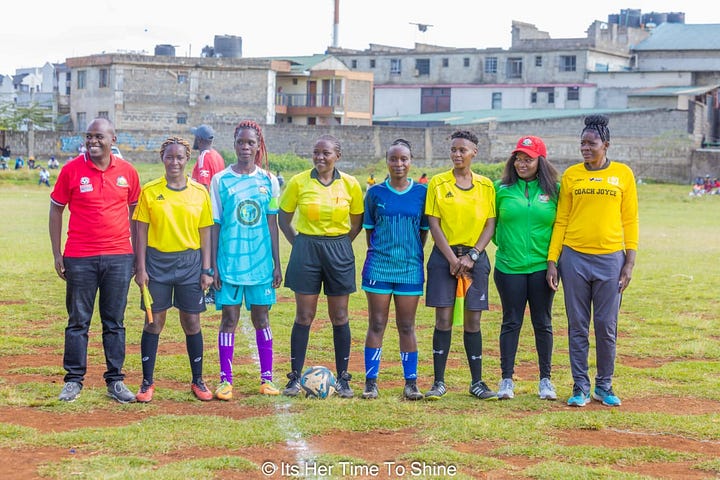
Joyce also had news of delivering safeguarding training in West Pokot County which is situated north of Eldoret on the border with Uganda. This training was conducted in partnership with the French international NGO “Play International.”
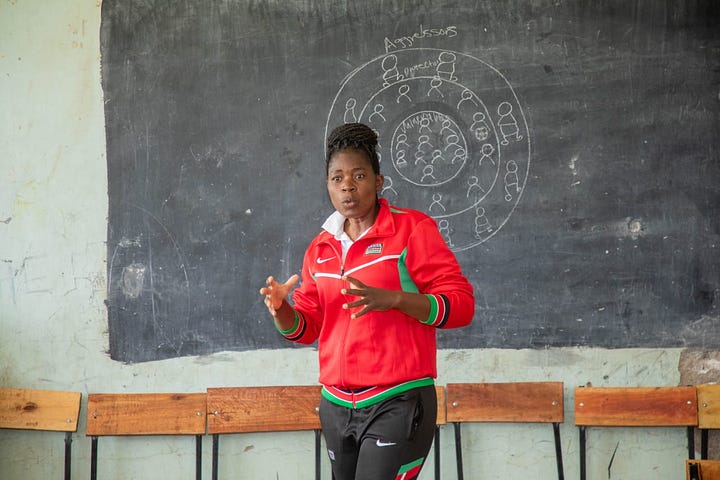

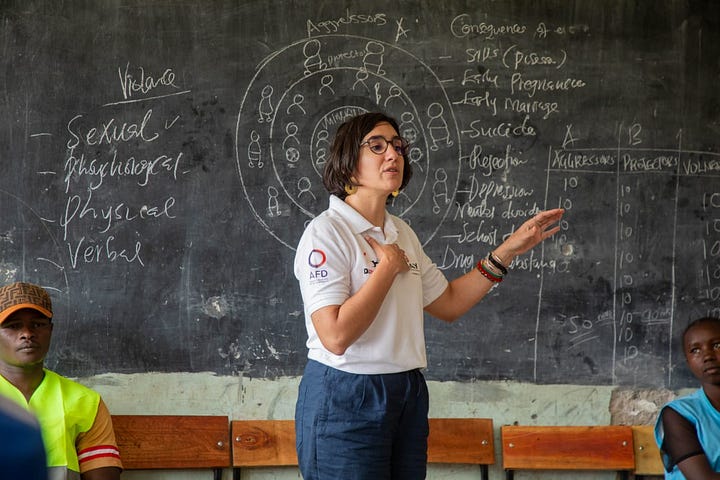

We need an army of trainers across just like Joyce here in Africa to facilitate safeguarding in sport awareness training at all levels but especially at the community level.
Resources
Safe Sport International Conference Report
The 5th Annual Safe Sport International Conference, held on December 9th and 10th, 2024, marked a significant milestone in the ongoing mission to foster safer, more inclusive sports environments.
Hosted in a virtual format, this year’s conference united participants from over 40 countries, reflecting a truly global commitment to transforming the culture of sport. From grassroots initiatives to elite competition, the discussions addressed the multifaceted challenges of safeguarding, equity, and inclusion.
Centred around the theme “Parks + Podiums,” the conference bridged the gap between community-level sports and the highest levels of competition. This theme underscored the universal relevance of safeguarding across all tiers and the shared responsibility to create safe, empowering spaces for athletes, coaches, officials, and stakeholders.
Safe Sport International have produced a conference report ideal for those who missed the conference and for those who attended who would like a summary of the conference messages. To access the report you need to sign up to Safe Sport Connect.
Ensuring Sport is Safe for Everyone
Listen to Mhairi MacLennan, a British International Runner, who waived the right to anonymity to expose the sexual abuse she suffered at the hands of her coach in Edinburgh, John Lees.
Mhairi is the co-founder, along with fellow athlete, Kate Seary, of Kyniska Advocacy, the UK's Only Athlete-Led & Sport-Wide Safe Sport Organisation. A survivor-led and athlete-run organisation working with UK sporting communities to influence change in welfare and wellbeing policies for women athletes.
Play Their Way
The Children’s Coaching Collaborative have updated their website to become the go to website for information and resources on child centred coaching. This is a must if you engage in coaching children in sport.
News
Sexual Violence Prevention in Sport
A call to action emphasizing institutional over individual responsibility.
Despite ongoing calls for action, the incidence of sexual violence remains a pervasive issue in sport. Preventing sexual violence in sport requires broader institutional and cultural shifts. Eliminating sexual violence in sport demands courage, accountability, and commitment to justice.
Link to article in Psychology Today
Samuel Eto'o's CAF Executive Committee Bid Rejected
Cameroon's greatest footballing icon, Samuel Eto'o, president of his country's FA since 2021, has been disqualified from running for a place on the Confederation of African Football (CAF) Executive Committee. Following a ruling from the CAF governance committee, convened on January 24, 2025, that rejected his candidacy due to irregularities found in his application.
In October last year, the FIFA Disciplinary Committee sanctioned Samuel Eto’o, with a six-month ban from attending matches of Cameroon’s representative teams for breaches of articles 13 (Offensive behaviour and violations of the principles of fair play) and 14 (Misconduct of players and officials) of the FIFA Disciplinary Code.
In July last year, Eto’o was acquitted of charges for alleged match-fixing and breaching ethical principles but was subsequently fined $200,000 by the Confederation of African Football (CAF) for an ethics breach.
The Importance of a Duty of Candour in Safeguarding
Interesting blog on the idea of a Duty of Candour in Safeguarding.
In recent years, safeguarding has come to the forefront of discussions in organisations across all sectors. While many organisations have robust safeguarding policies, one area often overlooked is the adoption of a duty of candour when responding to safeguarding issues. For safeguarding specialists, promoting this duty can make a significant difference in how organisations protect those at risk and address harm when it occurs.


